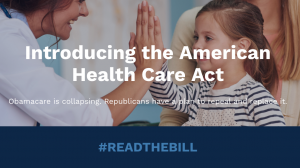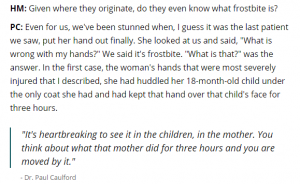EDITOR’S NOTE: This piece’s posting was delayed by technical errors. However, the analysis of the American Health Care Act (AHCA) is still pressing and relevant. While the bill was pulled from a planned House vote in the US Congress on Friday 3/24/17 because Republicans (the GOP) did not have enough votes to pass it, House Republican leader Paul Ryan has vowed to try again after revisions to the AHCA. We do not know what they will be. Insofar as the elements critiqued by Rory Kraft remain in future versions, we still very much need this analysis. Indeed, Kraft analyzes some aspects of the proposal that did not receive a close viewing in news media, including the impact on access to abortion. At the end of Rory Kraft’s analysis, you will find a helpful list of other IJFAB Blog articles on health care and benefits reform in the US and other nations.
AUTHOR’S PREFACE:
This argument was originally written for another venue, and thus is quirky in that it assumes a certain level of informality and is not written to be either persuasive or educational in the manners that op-eds often are. It is also at the same time a bit defensive (“please don’t troll me!”) and expressive. Quite simply, this is my attempt to capture for others my own reactions to the bills being called collectively the American Health Care Act. I’ve cleaned it up a bit, but essentially here are my reactions as to how the relevant bills stood as of late Thursday 3/9/17.
—
Since the House leadership plan to repeal and replace the Affordable Care Act (ACA) was released late Monday March 6, I’ve had several people ask me what I think of the new plan. This is my attempt to provide some insights.
First, like almost anyone who has looked at the ACA I have some problems with it. The ACA is gargantuan in scope and has many side provisions which impact the functionality of it. I can only assume that many of these were attempts to placate particular senators and/or congressmen who were wavering in their support of the bill. The specifics of the bill are a mess while at the same time leaving big swaths to administrative regulatory language. I say all this because I am concerned that some will take the following criticisms of the Budget Reconciliation act as a total endorsement of the ACA.
What do I think of these bills (the reconciliation language is split into two bills, perhaps in part to speed it through committees)? Quite simply: they are horrible.
A is for Abortion, so I start with issues tied to that:








